Carney: interest rates to rise in ‘relatively near term’
Financial markets expect 0.5% rate rise in November
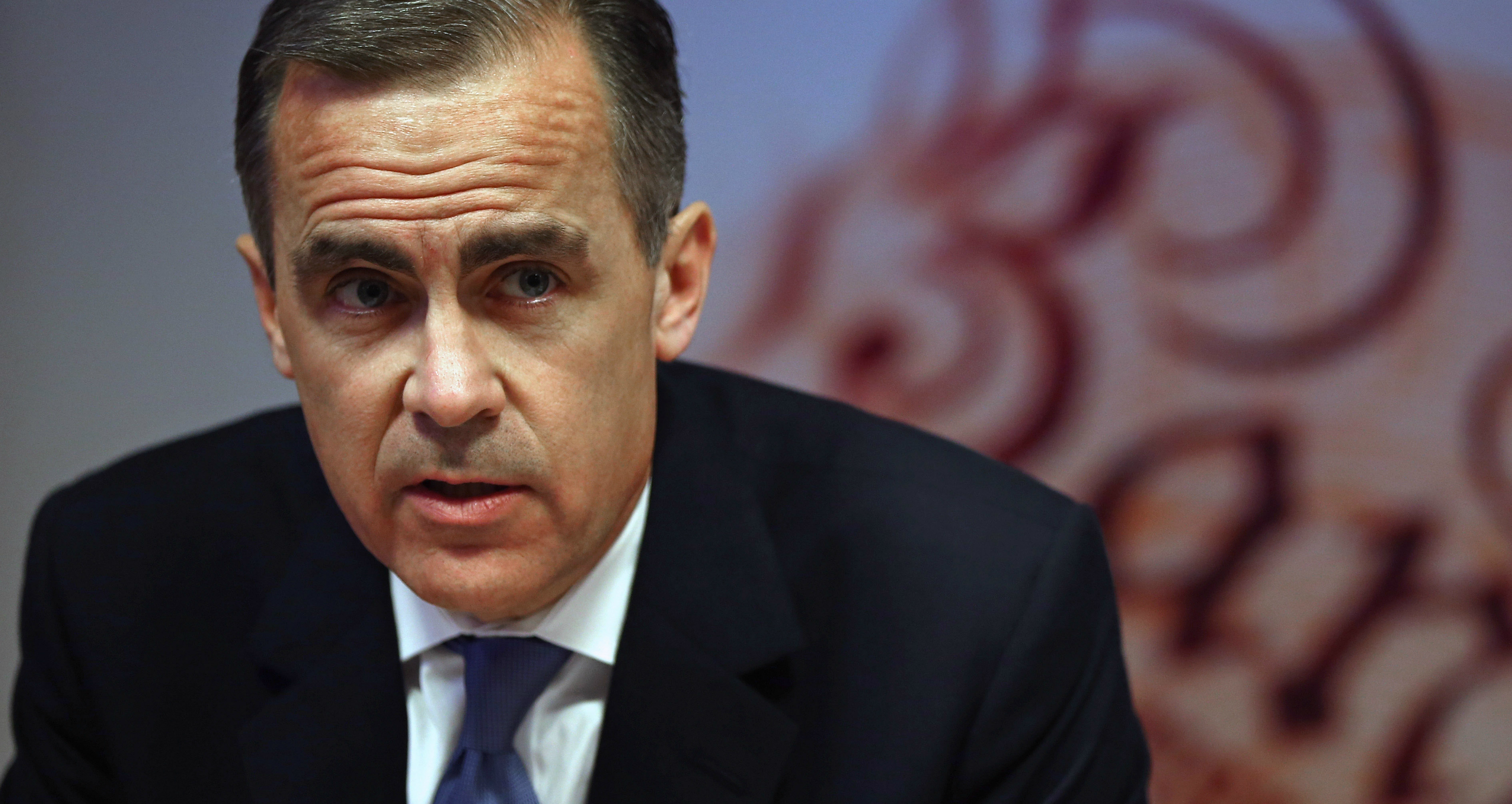
A free daily email with the biggest news stories of the day – and the best features from TheWeek.com
You are now subscribed
Your newsletter sign-up was successful
Mark Carney says interest rates may rise in the “relatively near term”, leading to speculation there could be an increase in November from 0.25% to 0.5%.
“If the economy continues on the track that it's been on, and all indications are that it is, in the relatively near term we can expect that interest rates will increase,” Carney told BBC Radio 4’s Today Programme today.
“We're talking about just easing the foot off the accelerator to keep with the speed limit of the economy and so interest rate increases when they come - when and if they come - will be to a limited extent and gradual,” Carney added.
The Week
Escape your echo chamber. Get the facts behind the news, plus analysis from multiple perspectives.

Sign up for The Week's Free Newsletters
From our morning news briefing to a weekly Good News Newsletter, get the best of The Week delivered directly to your inbox.
From our morning news briefing to a weekly Good News Newsletter, get the best of The Week delivered directly to your inbox.
The Financial Times says Carney’s “slip of the tongue will cement expectations that the central bank is about to raise the cost of borrowing for the first time in over a decade”. Financial markets anticipate a rate rise to 0.5% when the Bank’s monetary policy committee next meets on 2 November, the FT adds.
Meanwhile, Office for National Statistics (ONS) figures released today show the annual growth rate for gross domestic product was 1.5%, the weakest annual growth performance since 2013.
“Perhaps of greatest concern will be a decline in output in the country’s powerhouse service sector – responsible for the vast majority of UK growth since the financial crisis,” Sky News says.
The pound – which bounced back in early September to levels last seen in the aftermath of the Brexit vote – fell 0.5% against the US dollar in the wake of the ONS figures, back below $1.34.
A free daily email with the biggest news stories of the day – and the best features from TheWeek.com
-
 6 of the world’s most accessible destinations
6 of the world’s most accessible destinationsThe Week Recommends Experience all of Berlin, Singapore and Sydney
-
 How the FCC’s ‘equal time’ rule works
How the FCC’s ‘equal time’ rule worksIn the Spotlight The law is at the heart of the Colbert-CBS conflict
-
 What is the endgame in the DHS shutdown?
What is the endgame in the DHS shutdown?Today’s Big Question Democrats want to rein in ICE’s immigration crackdown
-
 The end for central bank independence?
The end for central bank independence?The Explainer Trump’s war on the US Federal Reserve comes at a moment of global weakening in central bank authority
-
 Should Labour break manifesto pledge and raise taxes?
Should Labour break manifesto pledge and raise taxes?Today's Big Question There are ‘powerful’ fiscal arguments for an income tax rise but it could mean ‘game over’ for the government
-
 What are stablecoins, and why is the government so interested in them?
What are stablecoins, and why is the government so interested in them?The Explainer With the government backing calls for the regulation of certain cryptocurrencies, are stablecoins the future?
-
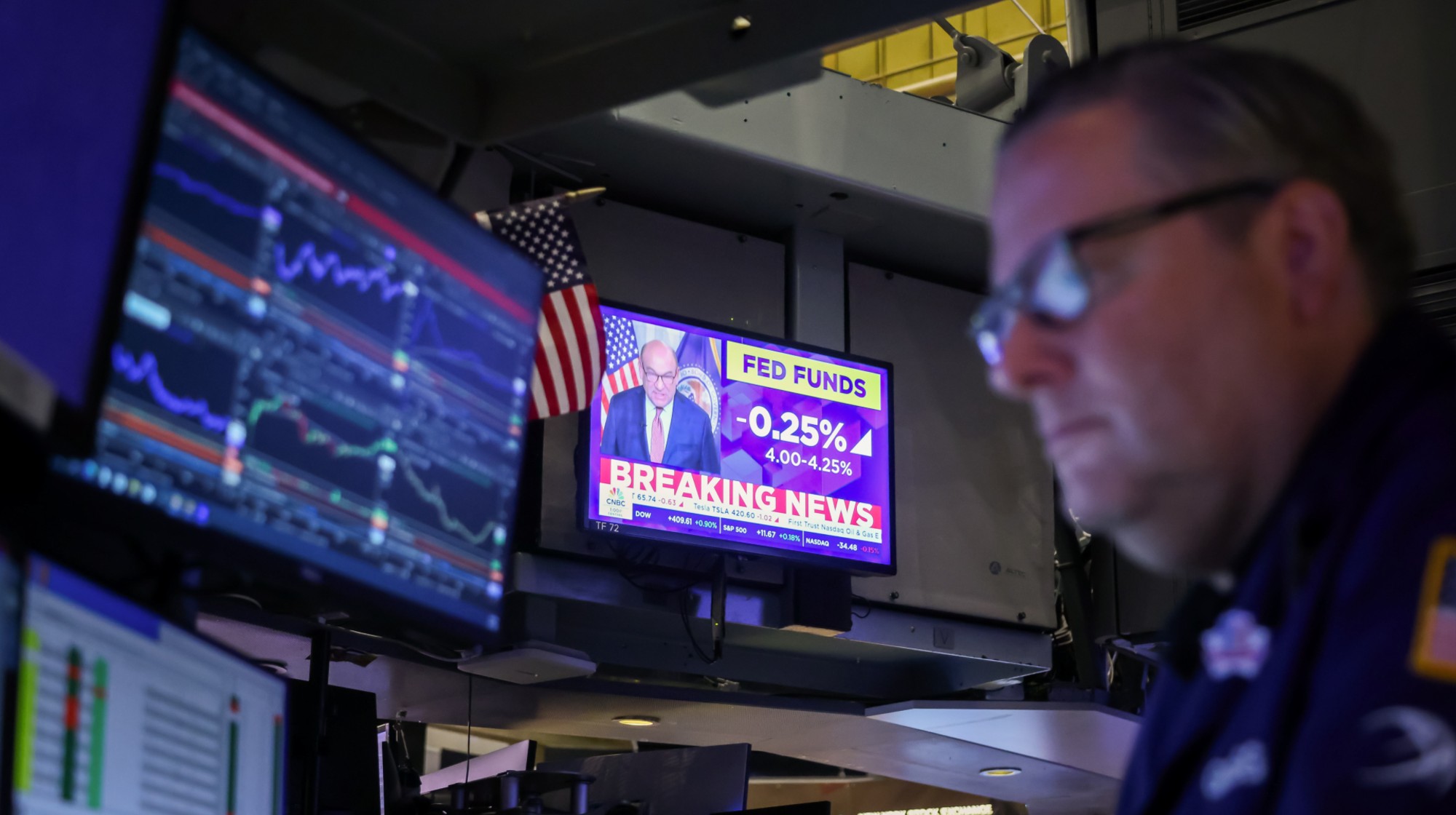 Fed cuts interest rates a quarter point
Fed cuts interest rates a quarter pointSpeed Read ‘The cut suggests a broader shift toward concern about cracks forming in the job market’
-
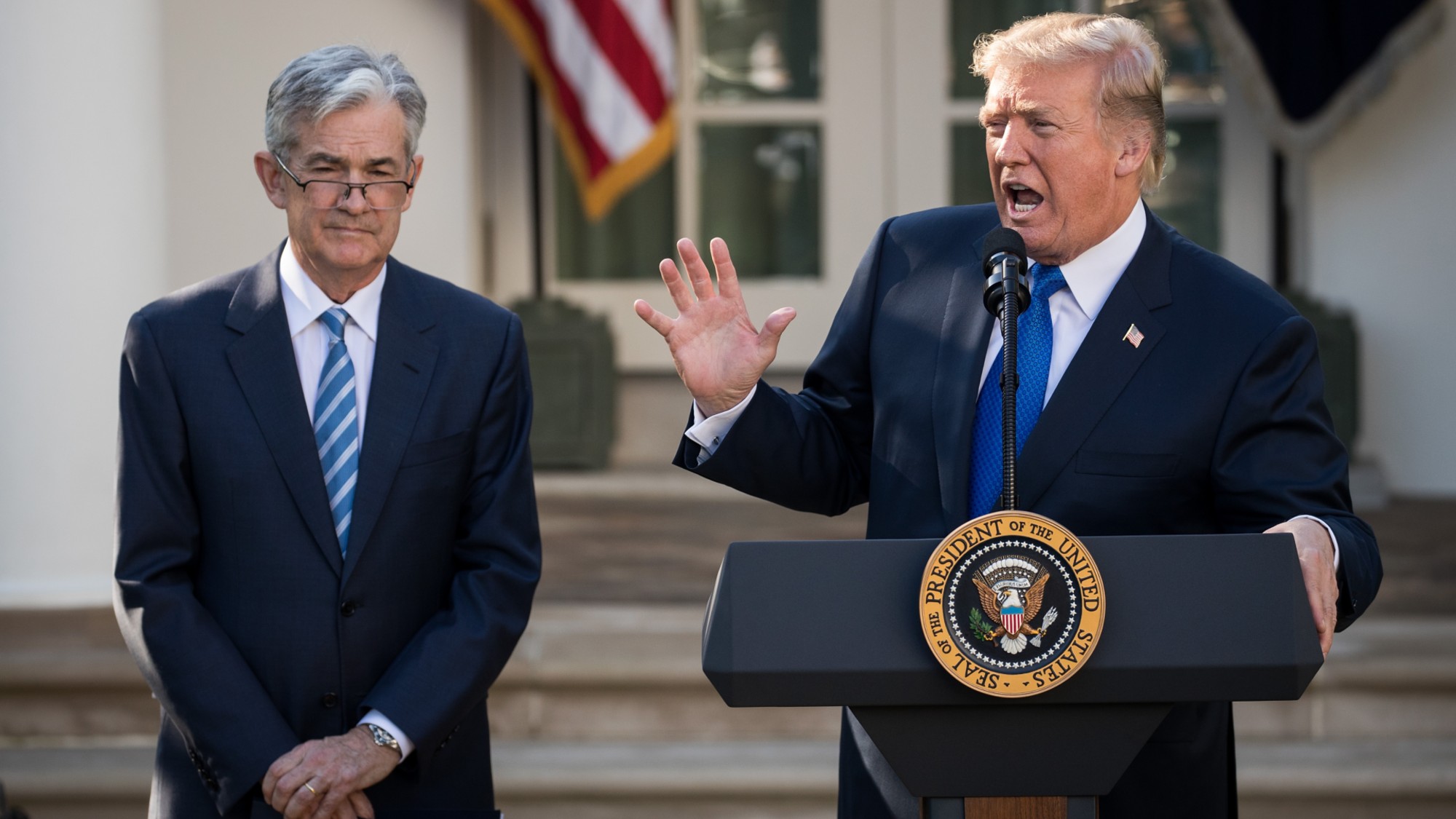 How will Wall Street react to the Trump-Powell showdown?
How will Wall Street react to the Trump-Powell showdown?Today's Big Question 'Market turmoil' seems likely
-
 Will Rachel Reeves have to raise taxes again?
Will Rachel Reeves have to raise taxes again?Today's Big Question Rising gilt yields and higher debt interest sound warning that Chancellor may miss her Budget borrowing targets
-
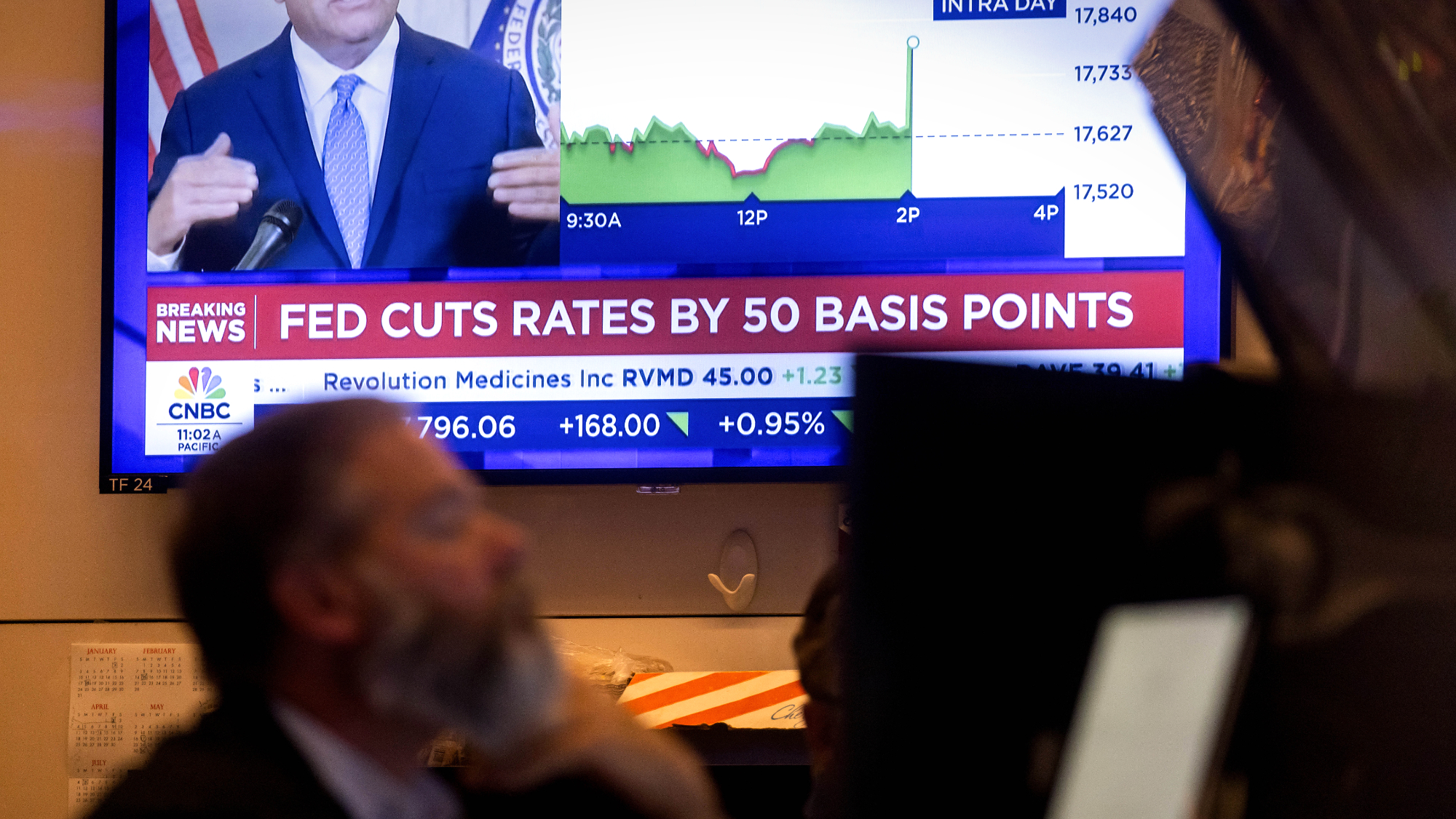 Fed cuts rates half a point, hinting victory on inflation
Fed cuts rates half a point, hinting victory on inflationSpeed Read This is the Fed's first cut in two years
-
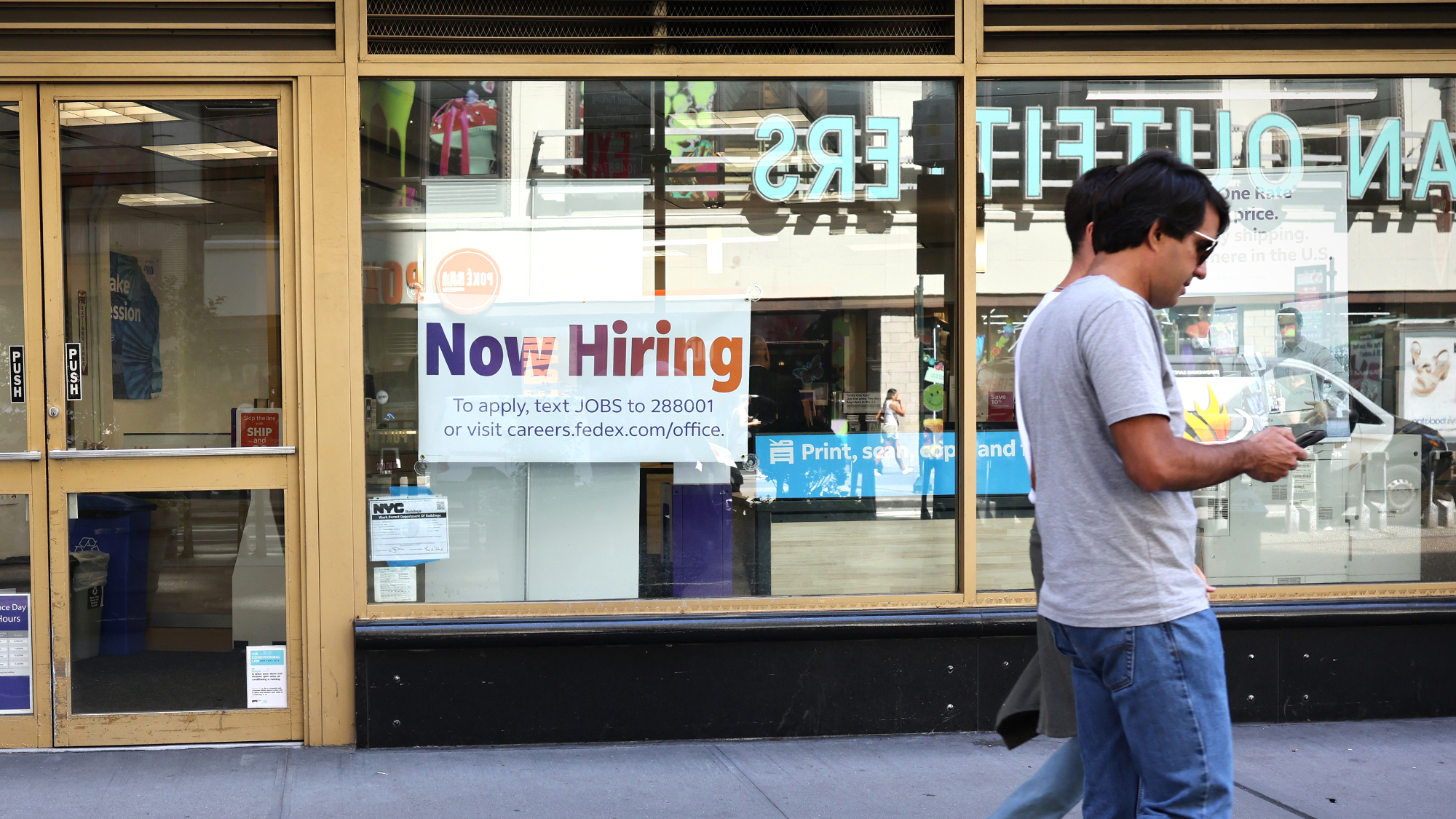 US job growth revised downward
US job growth revised downwardSpeed Read The US economy added 818,000 fewer jobs than first reported